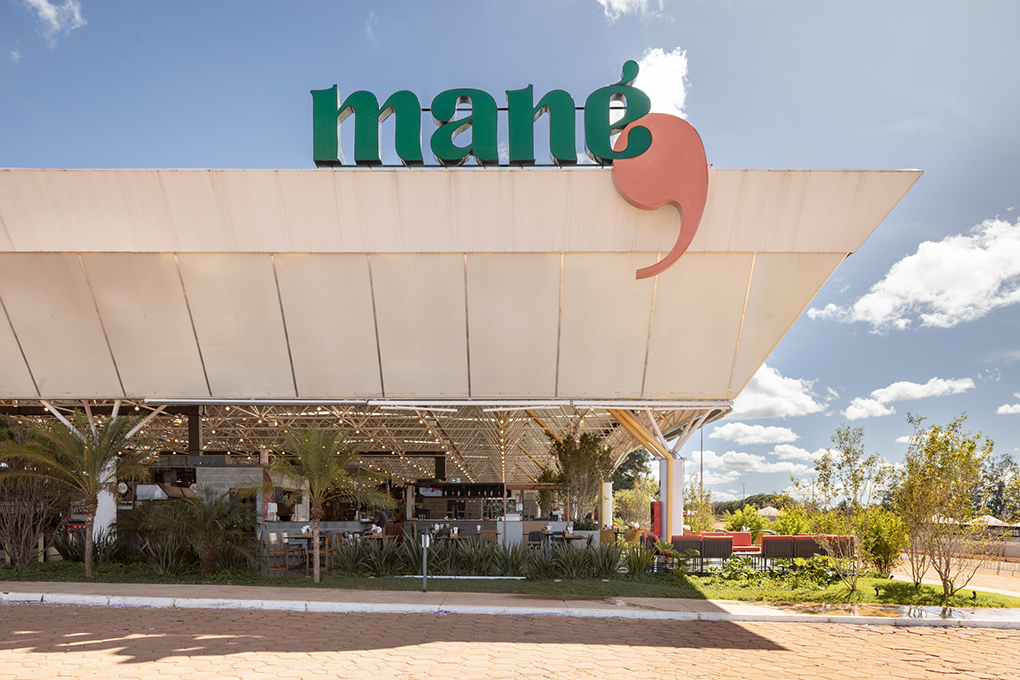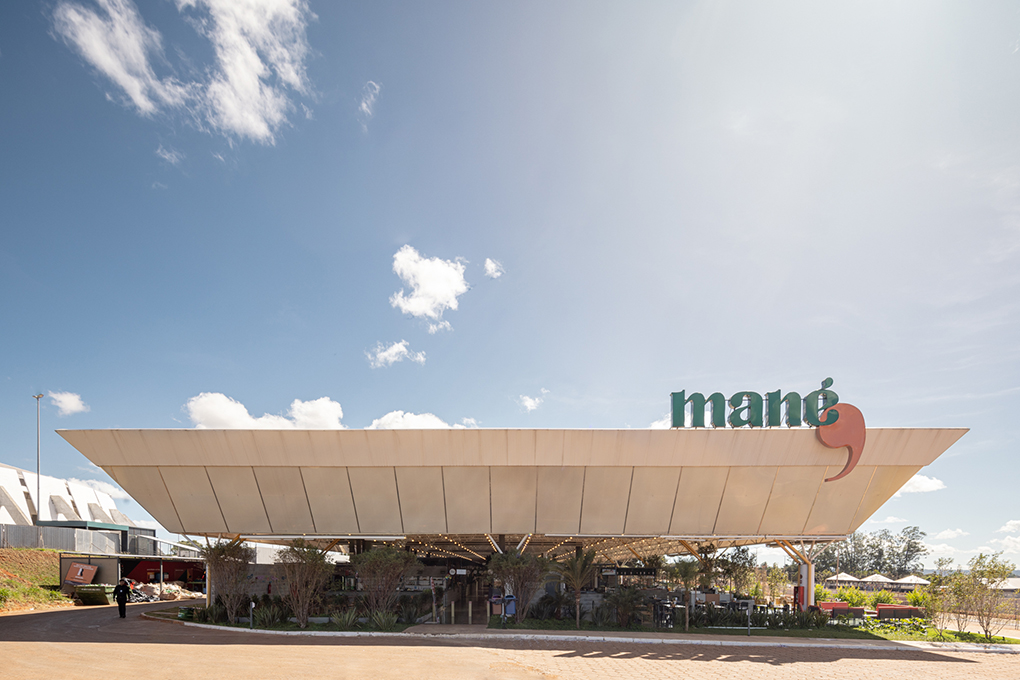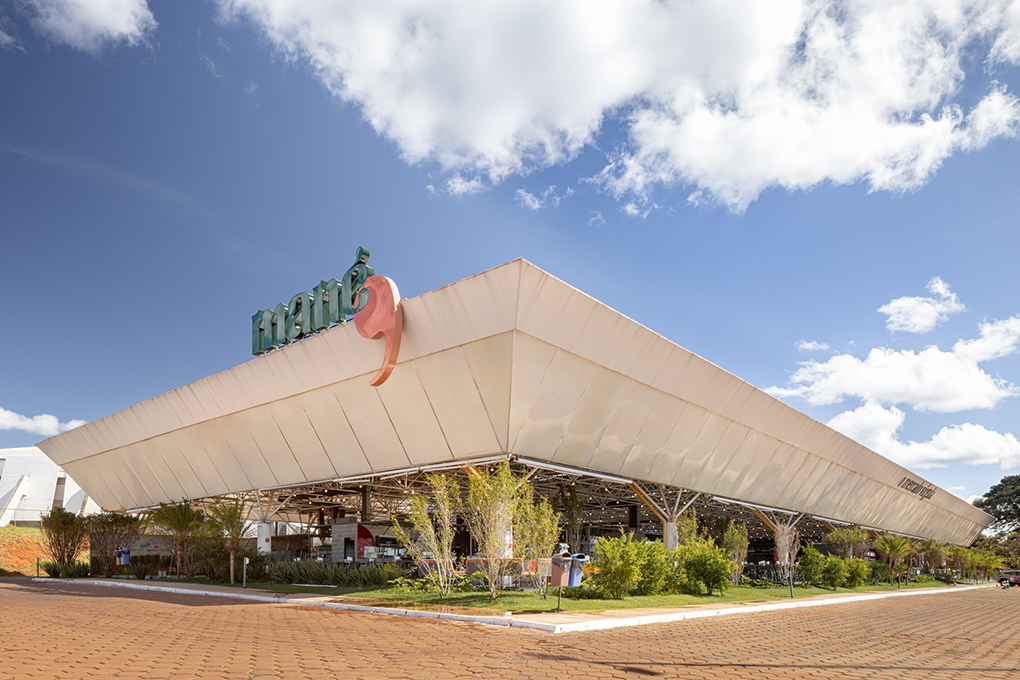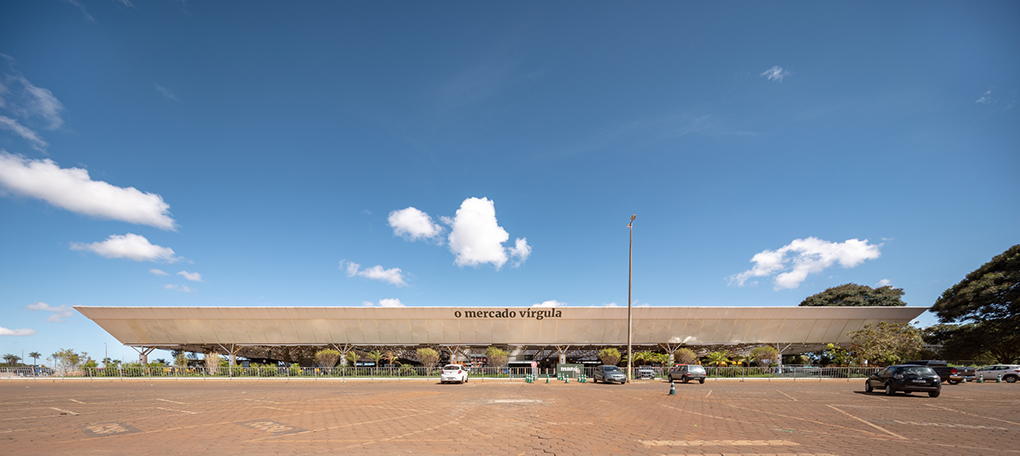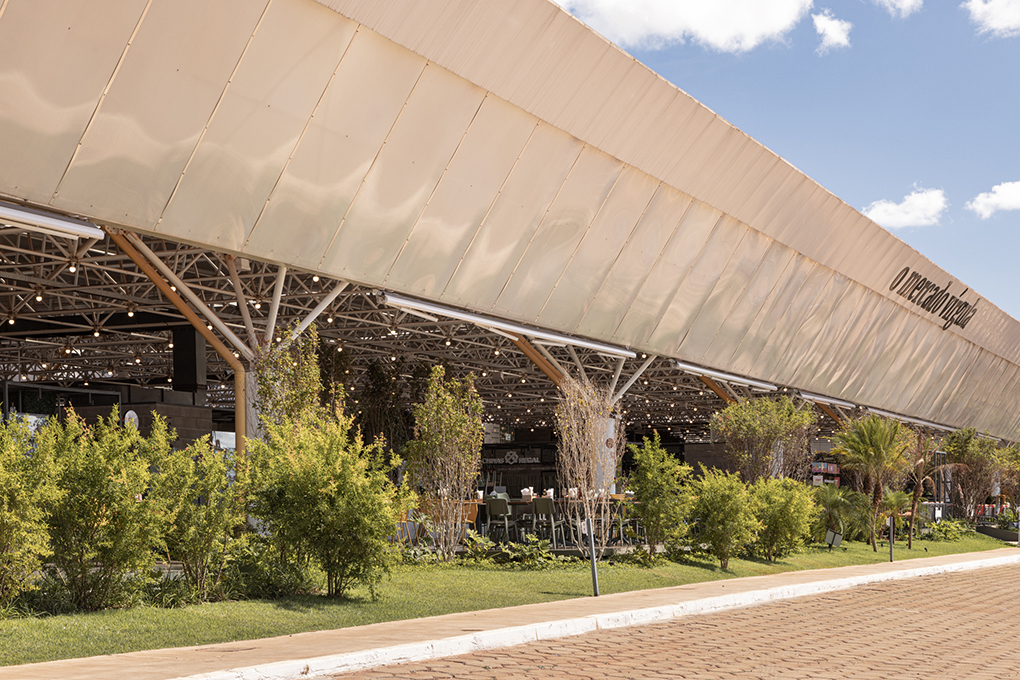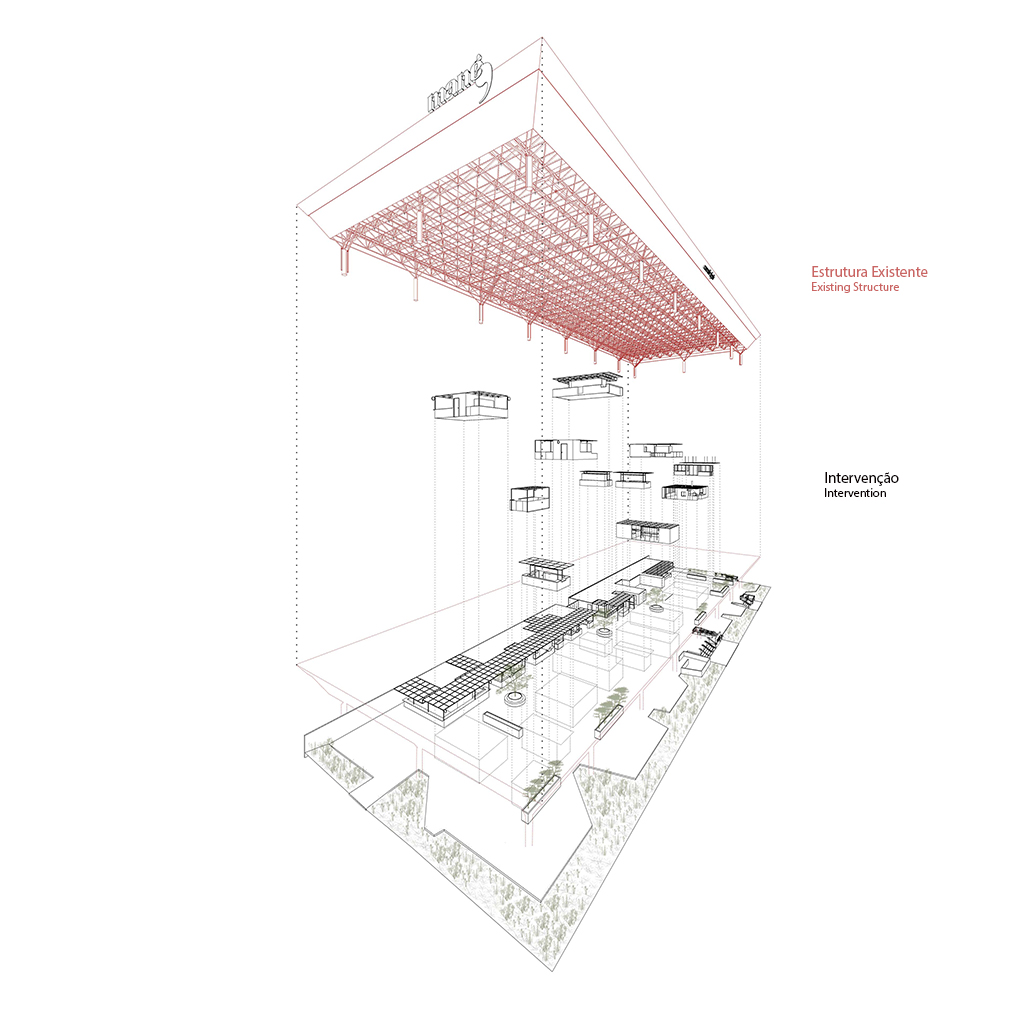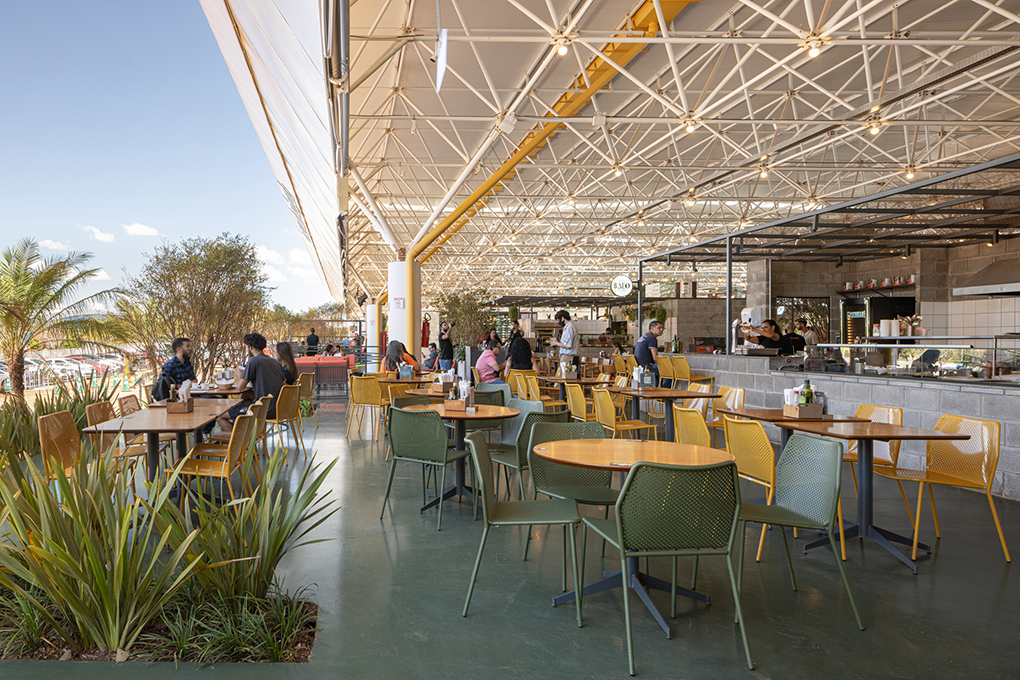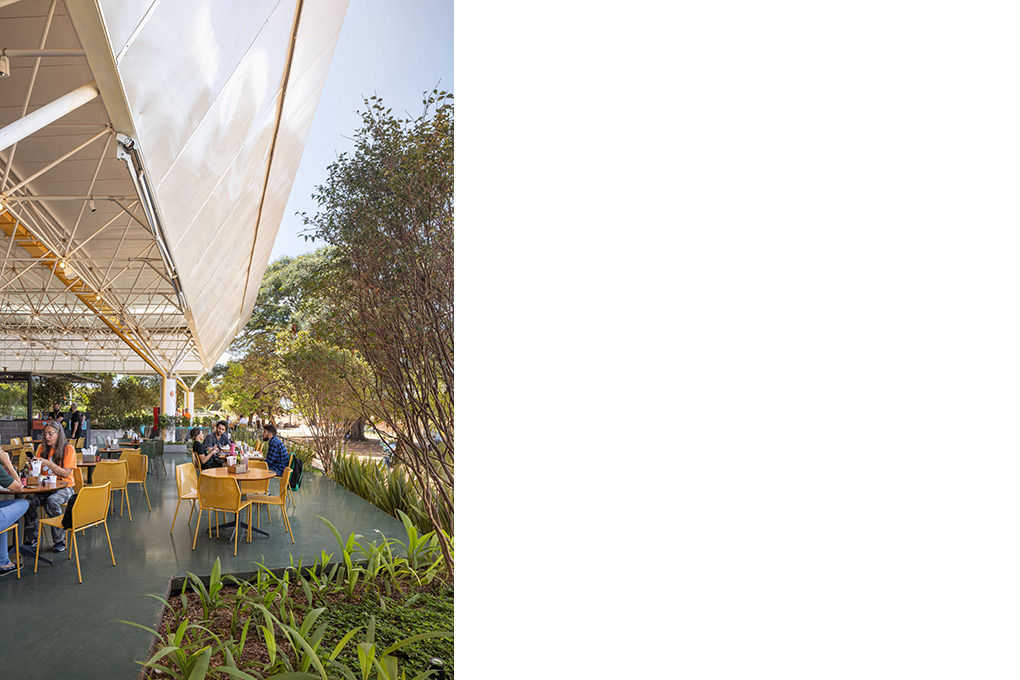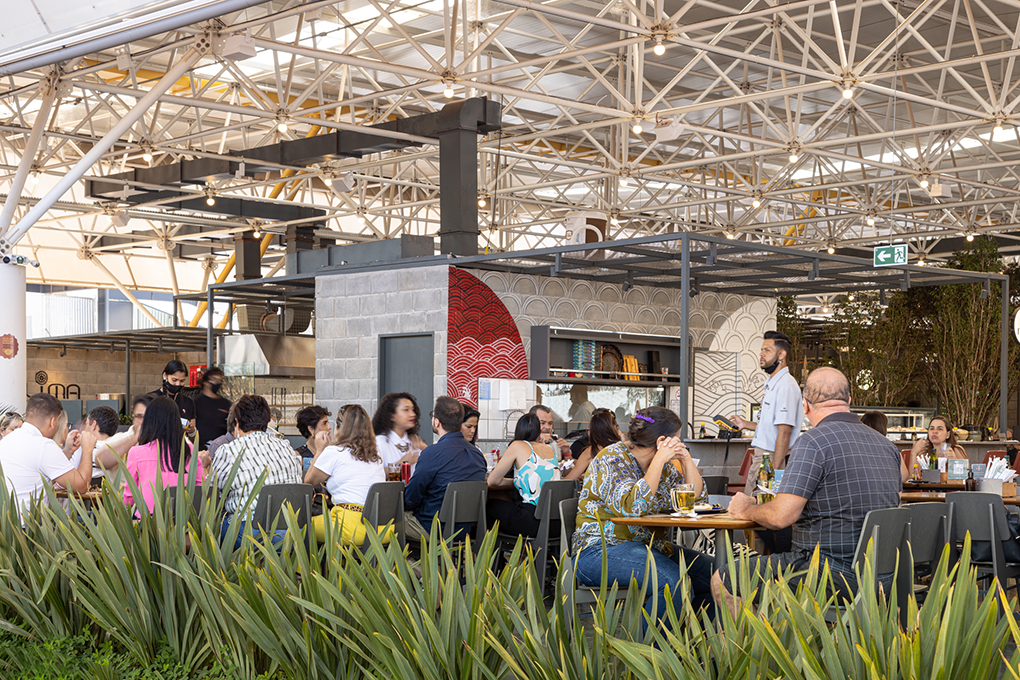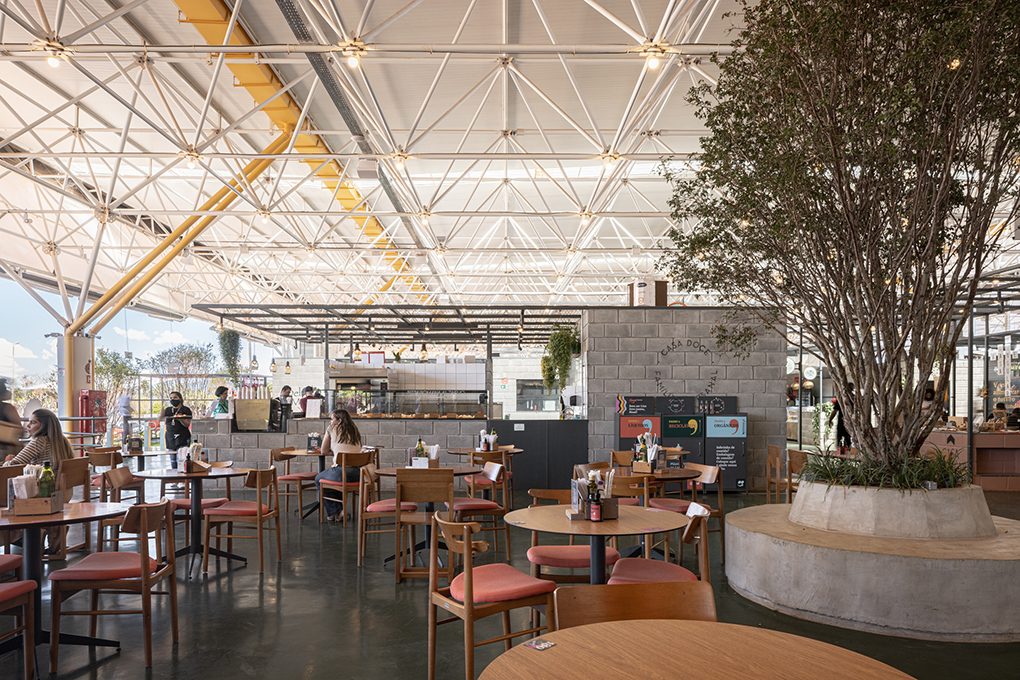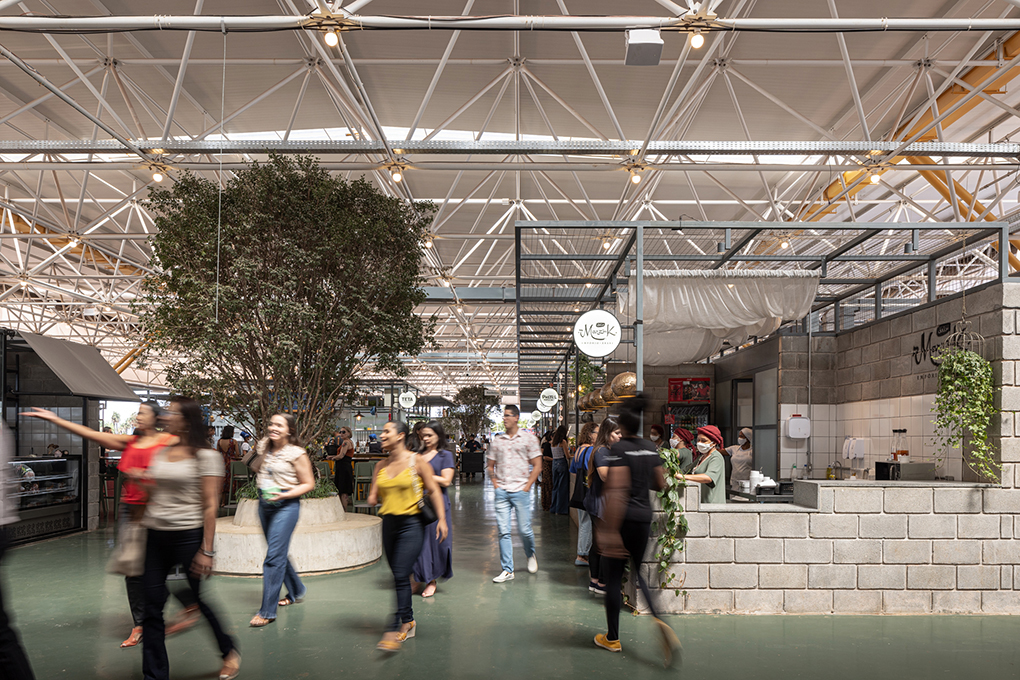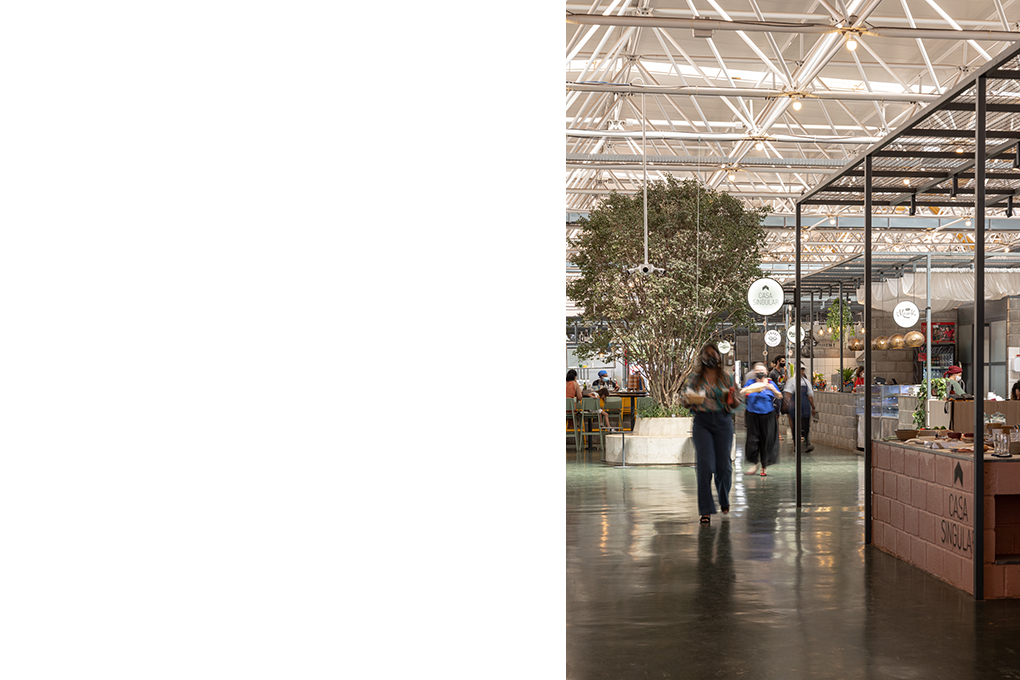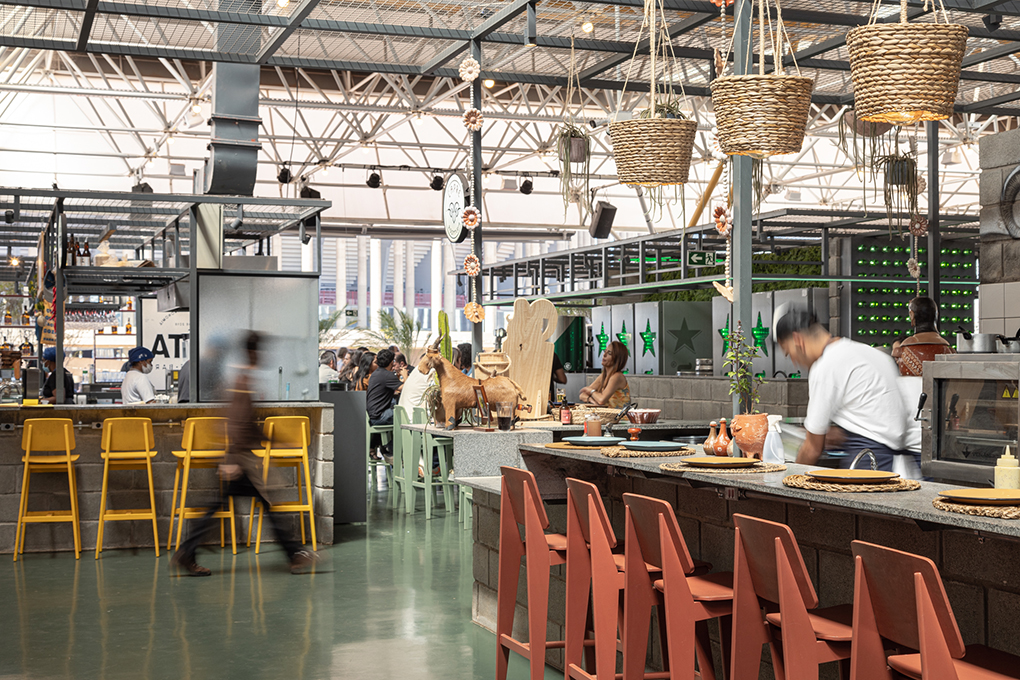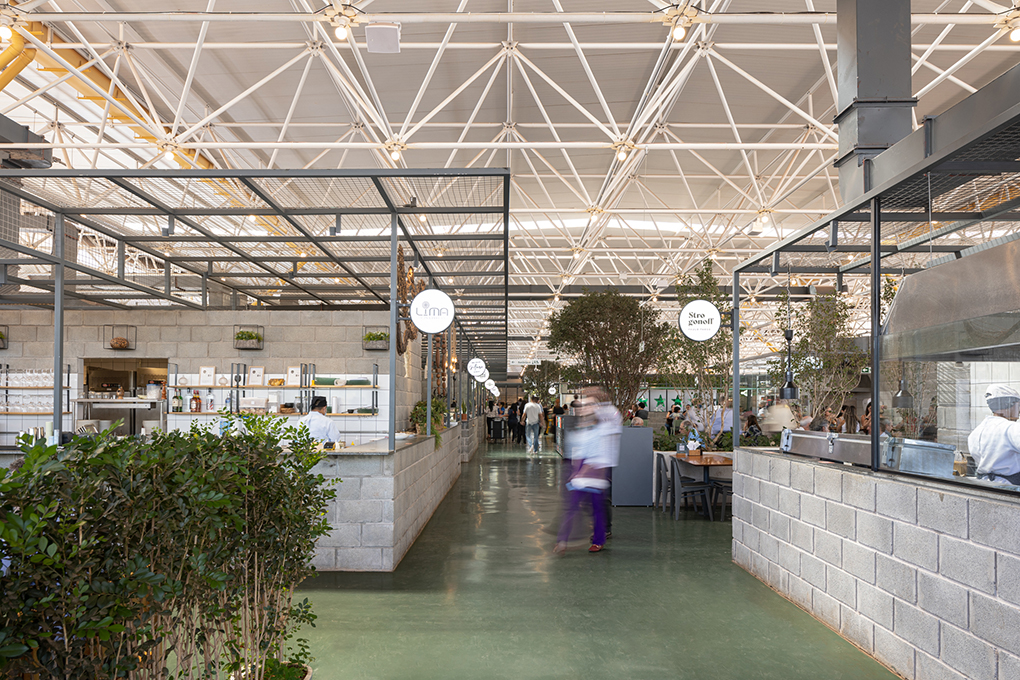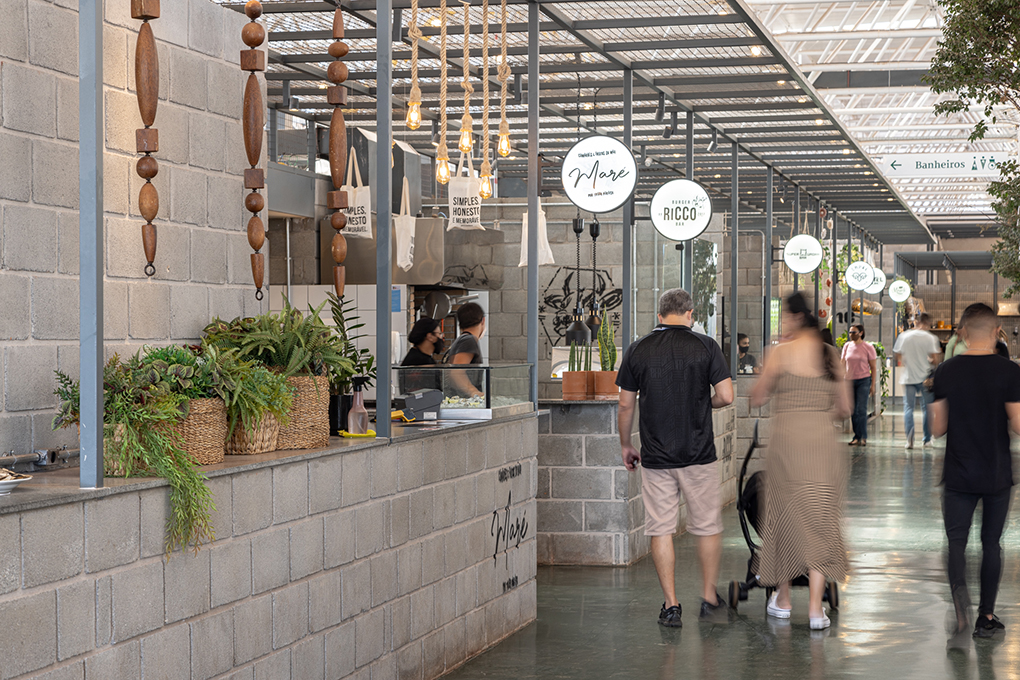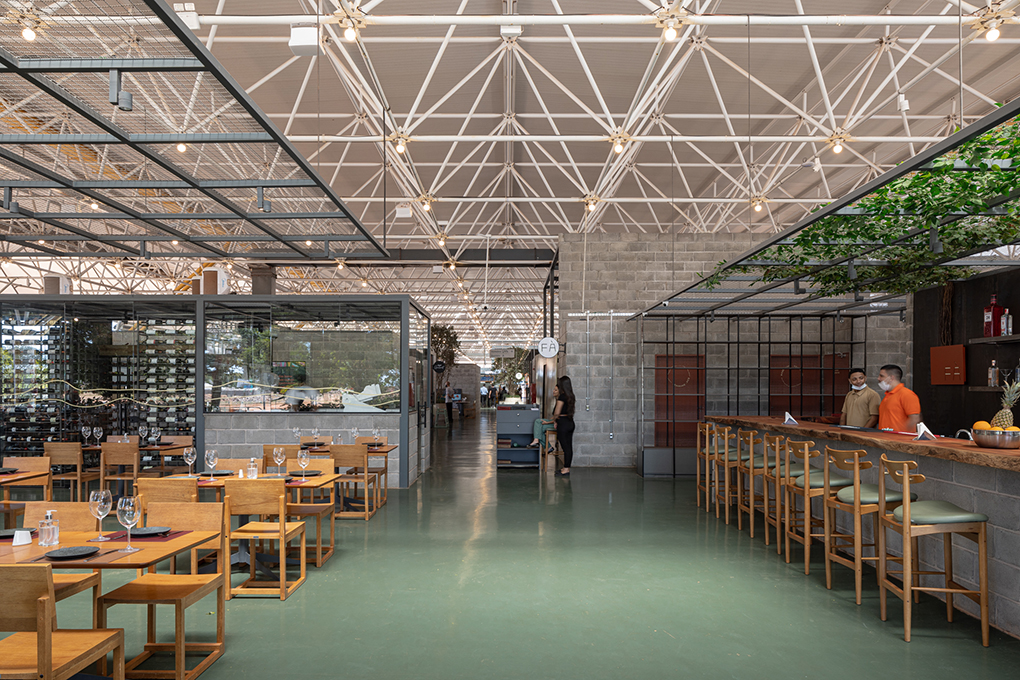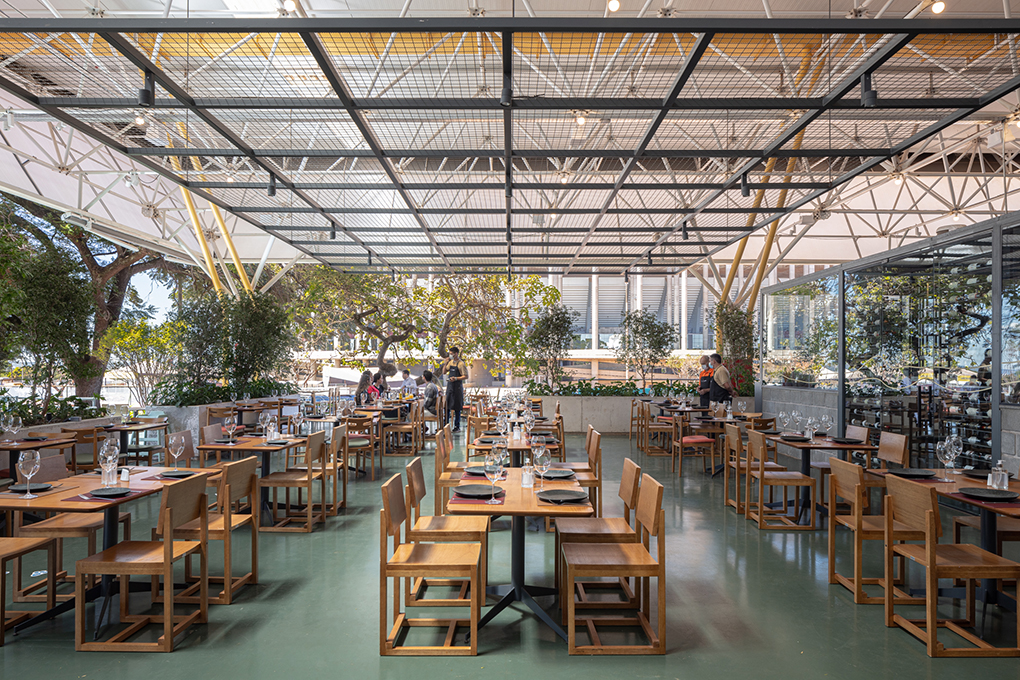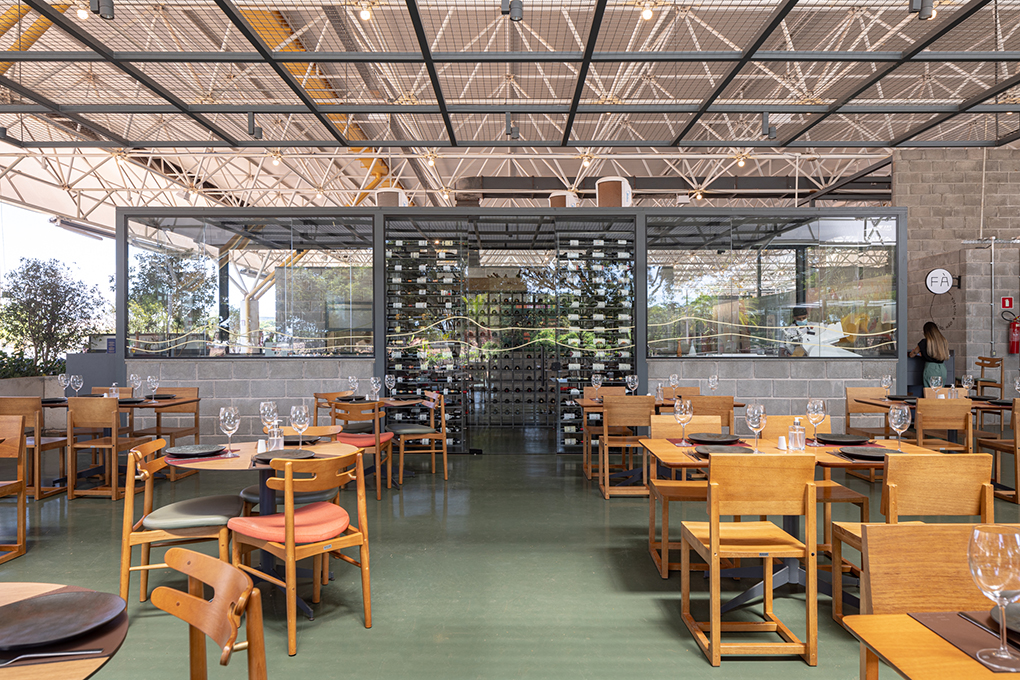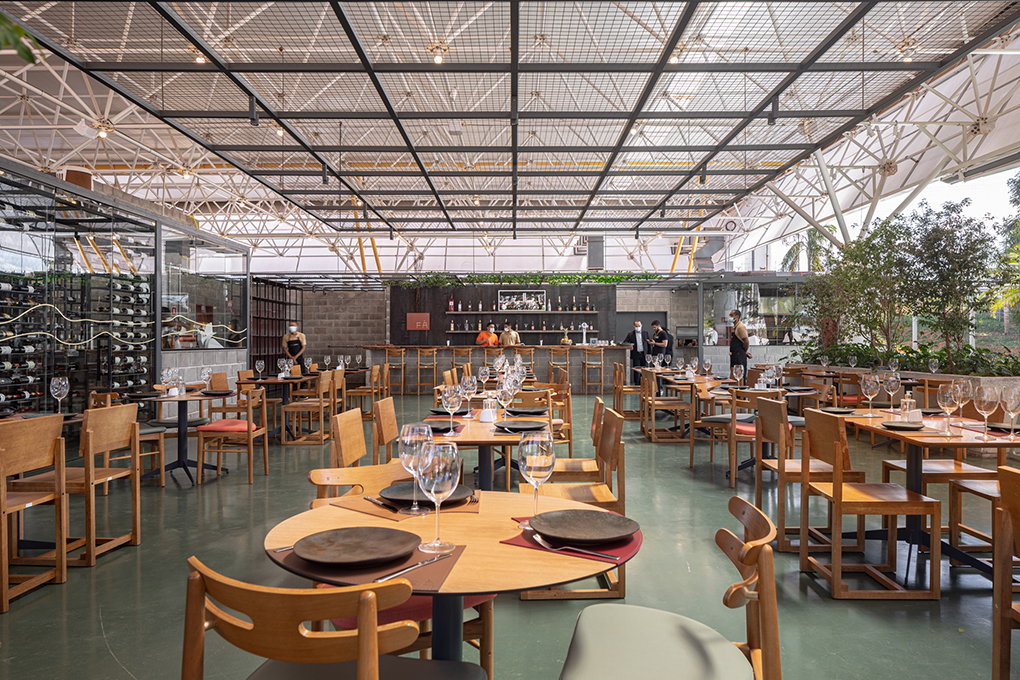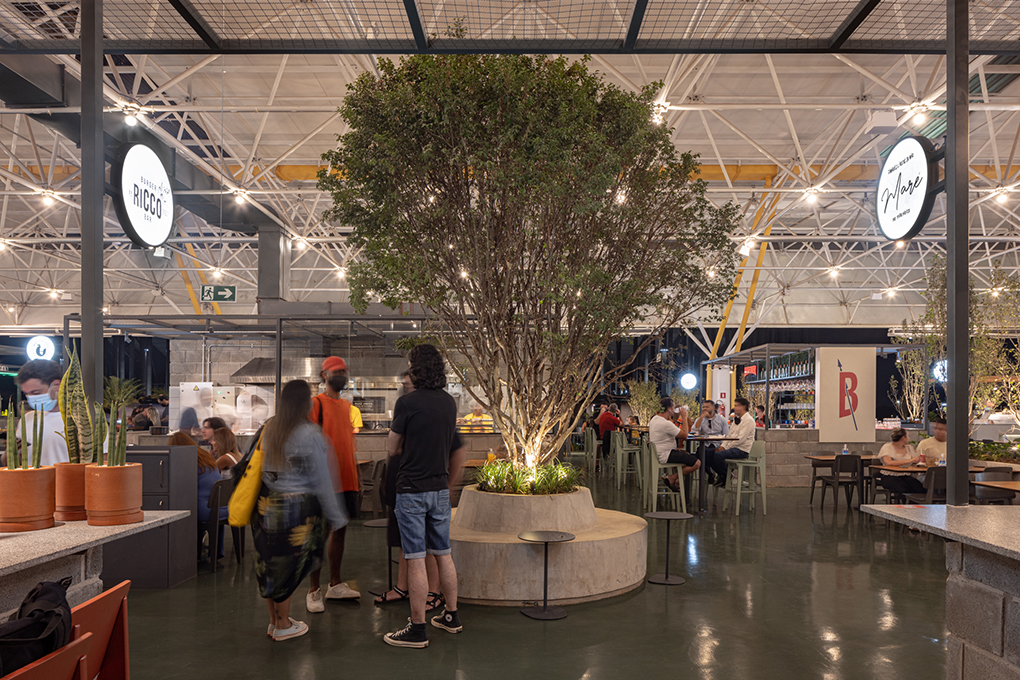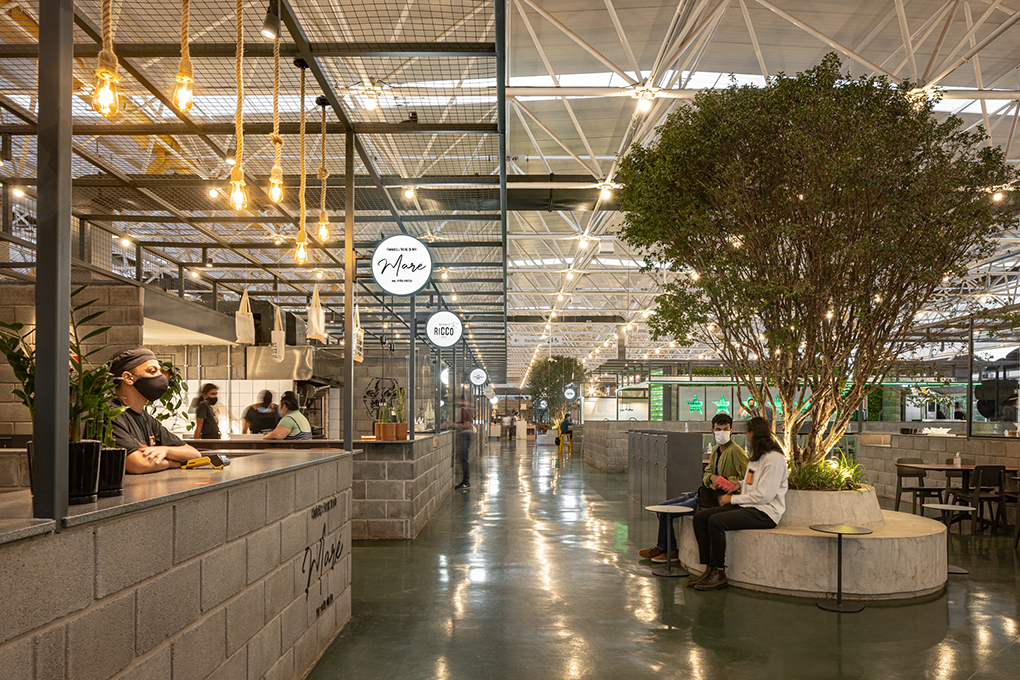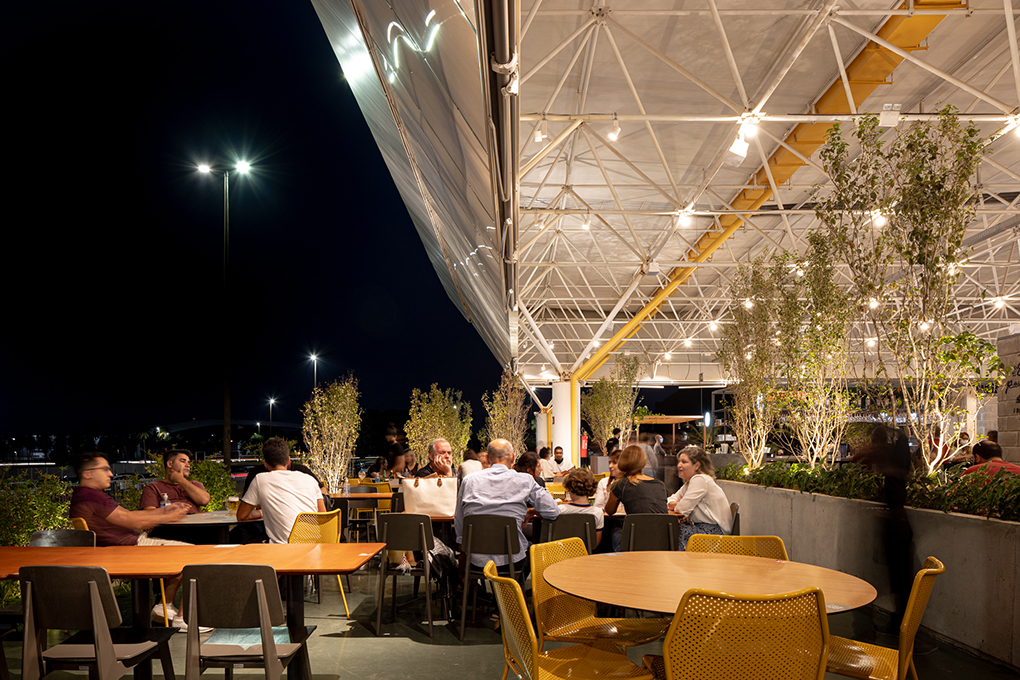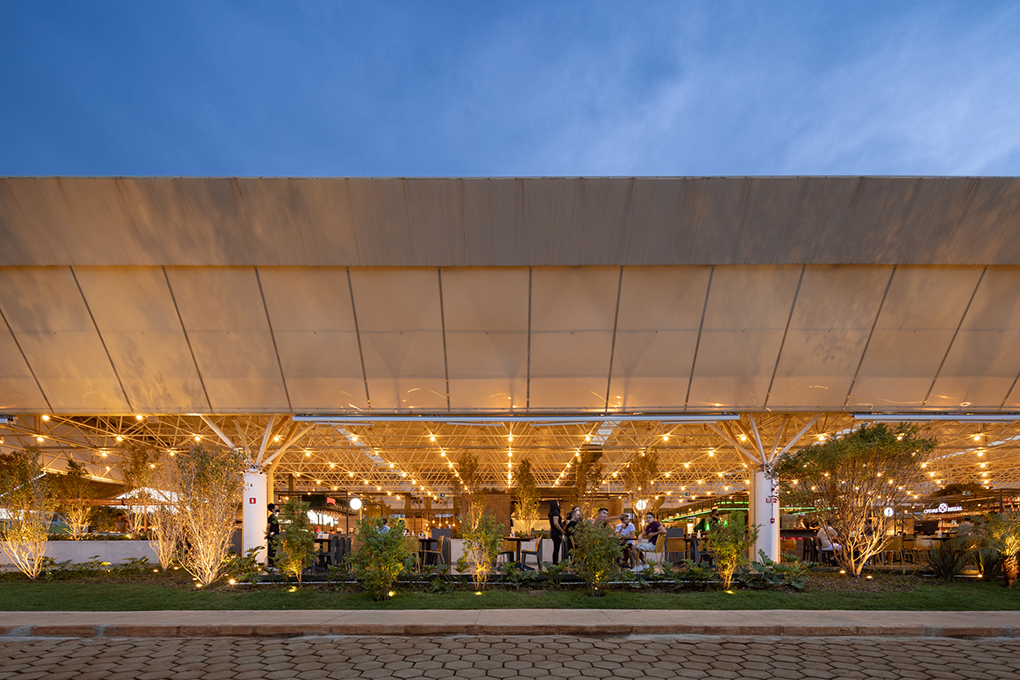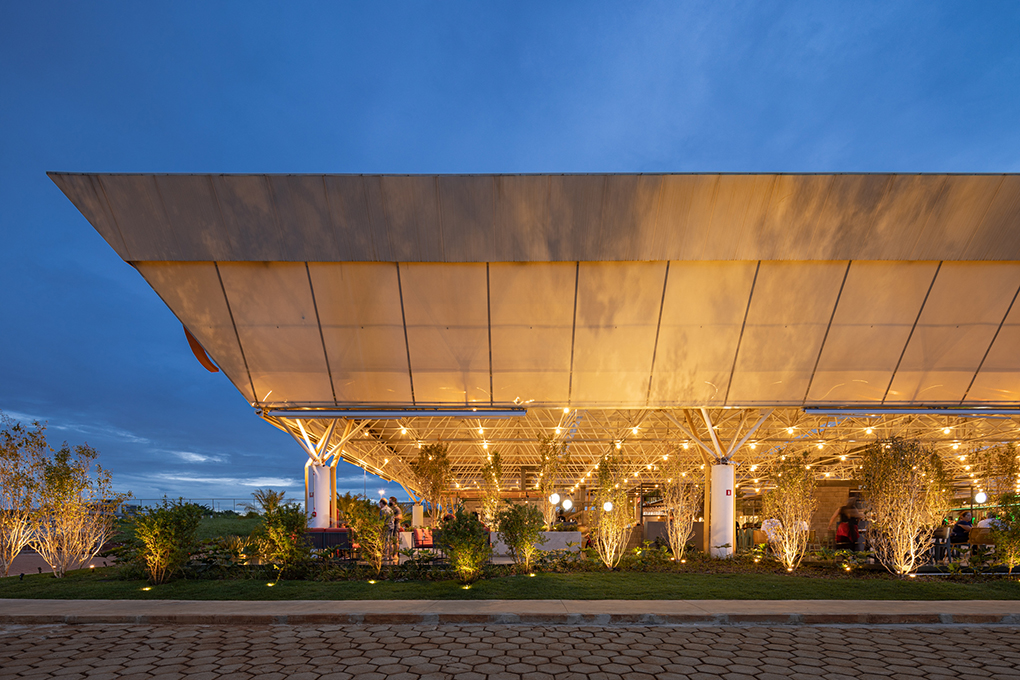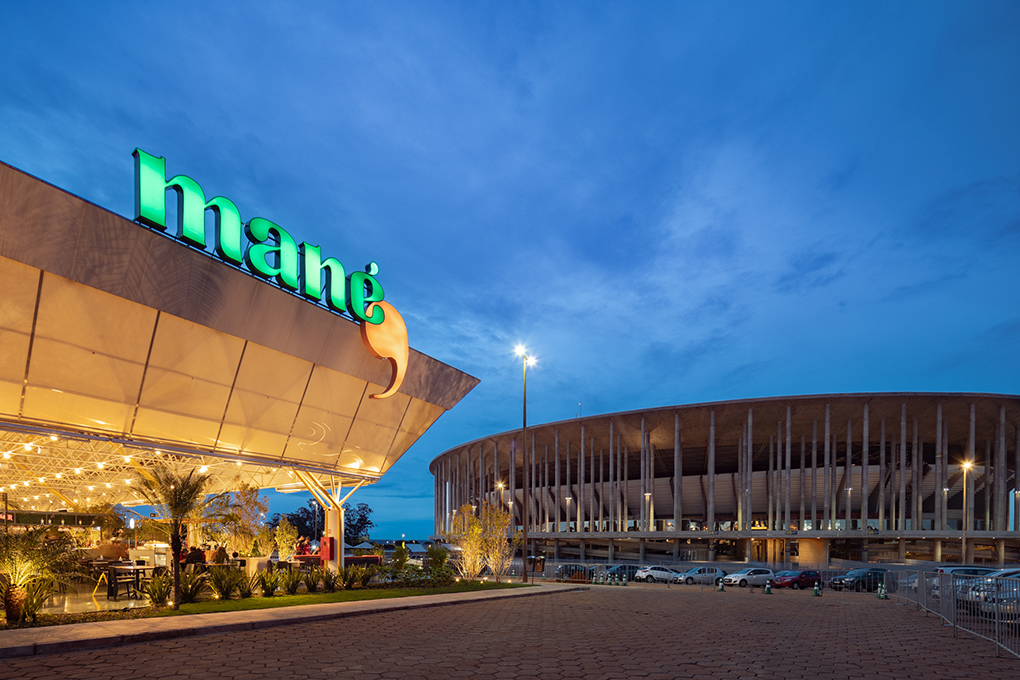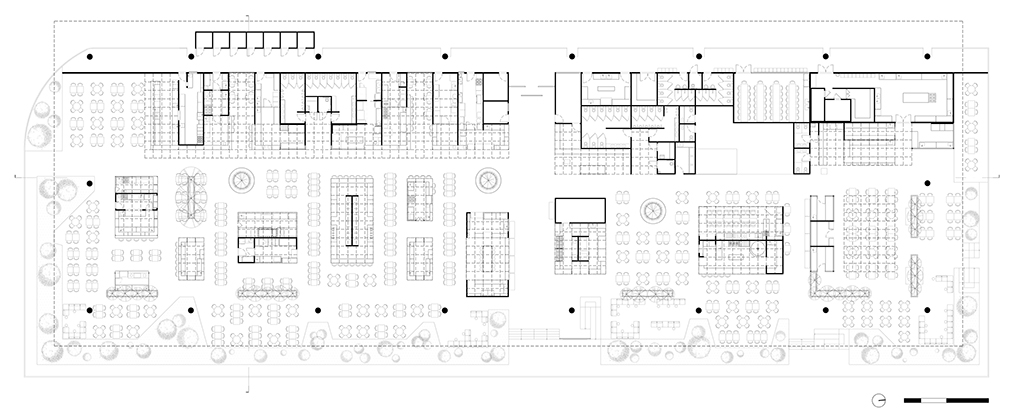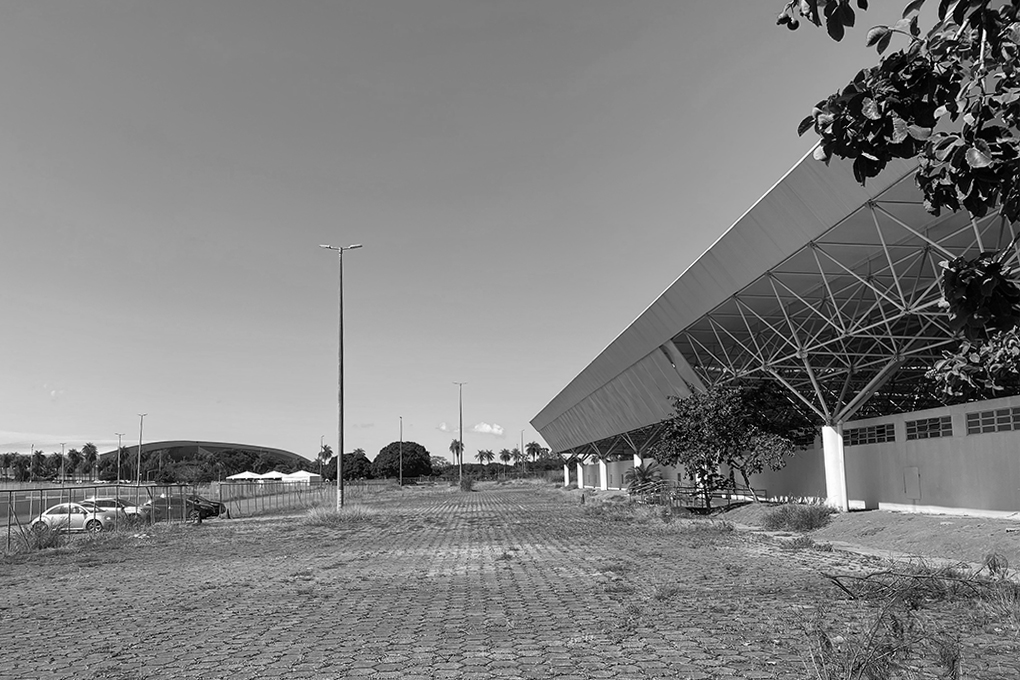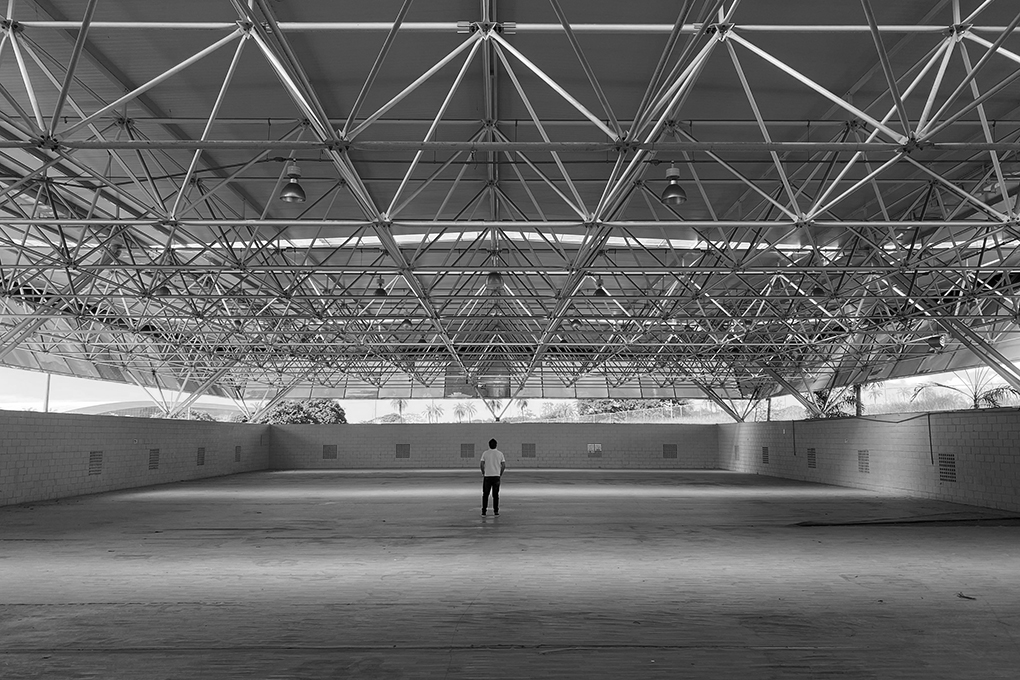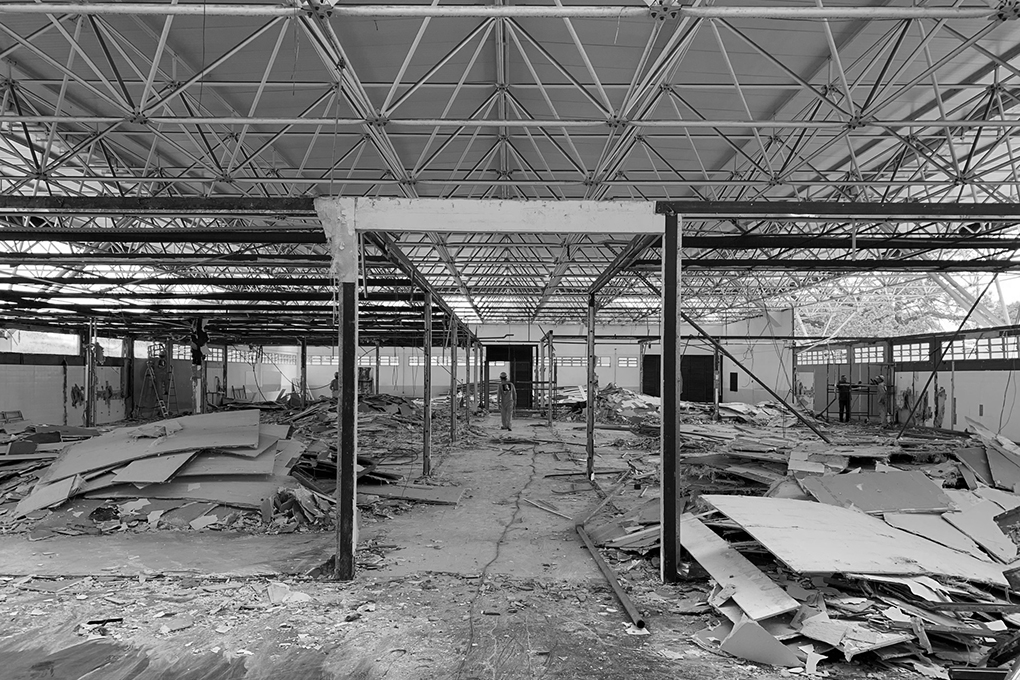Mane Market
BUILT
Brasília-DF, 2022
“Special Prize for Interior” in the Prix Versailles 2023 – Shopping Malls category, CASC
2nd place in the IAB-DF 2023 award, organized by the Institute of Architects of Brazil – DF Section
Awarded “Top Temporary Activation” at the Monocle Design Awards 2023, organized by Monocle magazine, United Kingdom
Finalist of the “ODA 2023” (Building of the Year awards 2023), organized by Archdaily Brasil.
Located in Brasília, between the Mané Garrincha National Stadium and the Nilson Nelson Gymnasium, on the Monumental Axis, the Mané Market project reuses the roof structure of an existing building. The market is a 6 year long temporary installation that will exist until the definitive installation of the future Sports Complex of Brasília at that location, whose construction is scheduled to begin in 2026. Until then, the objective is to take advantage of the existing infrastructure on the site and transform it into a market focused on gastronomy. The existing building was used during the 2007 Pan American Games. However, after that event, its space had been empty and unused for several years.
The idea was to requalify the space with the adoption of simple interventions, due to the short period of construction work that had been required: 3 months. We removed the walls that surrounded the old building to create a “large balcony” under which we distributed all the functions of the new program in semi-open areas that can make full use of natural light and ventilation. We revitalized the roof and made small changes to it, such as painting the rainwater collection system and distributing the lamps in each of the “nodes” of the structure, marking its modulation. We created an entirely new concrete floor slab slightly elevated from the ground to redefine and extend the boundaries of the market and mark its main accesses without the need for fences or other visual barriers. Around the floor, we created perimeter garden areas that also enter the internal space and delimit areas, bringing the landscaping inside the large roof.
The new program was distributed in small buildings and pieces of fixed furniture that were built under the roof. For this, we used only two different materials: concrete – in the form of exposed structural blocks for the stores and exposed concrete for the planters and fixed furniture – and the metallic structure painted in lead gray that was used to create a “second roof” which hangs below the main structure. This structure, executed in a grid made up of 100x100cm modules, serves to support auxiliary lighting and complementary parts of the program of each store without impeding the free view to the spatial structure of the existing roof.
The program’s “modules” were distributed in such a way as to define a meandering flow of users, interspersing circulation space and table space. We standardized the construction and main appearance of the commercial spaces by using the concrete block, without the need for coatings or paintings, apart from the kitchen and food preparation areas, as required by the local health regulatory agency. Full accessibility is achieved using access ramps, lowered counters and a structure of restrooms and reserved tables.
The complex also has a photovoltaic energy system that was thought of as an additional source to supply the high energy consumption of the restaurants. Therefore, Mané has a hybrid system, partially powered by the local power grid and partially by photovoltaic energy.
Next to the building, an urban garden was created, which receives compost from materials generated in the market. Thus, it will be possible to generate a communal awareness throughout the “ecosystem” of how the market works, also counting on the cultivation of healthy foods that will be donated. This activity is also part of the Zero Waste initiative, which aims to reduce environmental impact by reducing waste by at least 90%.
The market also offers a series of attractions, with a focus on social responsibility and inclusion. Food collection and classes for people in social vulnerability will be held in the SENAI (National Service for Industrial Training) gastronomy area.
Authors:
Daniel Mangabeira, Henrique Coutinho e Matheus Seco
Project Coordinators: Bárbara Neumann e Caio Nascimento
Team: Luis Alcântara
Built Surface: 4000sqm
Project: 2021
Construction: 2021-2022
Contractor: Rotacon
Photos: Joana França
Mane Market
BUILT
Brasília-DF, 2022
“Special Prize for Interior” in the Prix Versailles 2023 – Shopping Malls category, CASC
2nd place in the IAB-DF 2023 award, organized by the Institute of Architects of Brazil – DF Section
Awarded “Top Temporary Activation” at the Monocle Design Awards 2023, organized by Monocle magazine, United Kingdom
Finalist of the “ODA 2023” (Building of the Year awards 2023), organized by Archdaily Brasil.
Located in Brasília, between the Mané Garrincha National Stadium and the Nilson Nelson Gymnasium, on the Monumental Axis, the Mané Market project reuses the roof structure of an existing building. The market is a 6 year long temporary installation that will exist until the definitive installation of the future Sports Complex of Brasília at that location, whose construction is scheduled to begin in 2026. Until then, the objective is to take advantage of the existing infrastructure on the site and transform it into a market focused on gastronomy. The existing building was used during the 2007 Pan American Games. However, after that event, its space had been empty and unused for several years.
The idea was to requalify the space with the adoption of simple interventions, due to the short period of construction work that had been required: 3 months. We removed the walls that surrounded the old building to create a “large balcony” under which we distributed all the functions of the new program in semi-open areas that can make full use of natural light and ventilation. We revitalized the roof and made small changes to it, such as painting the rainwater collection system and distributing the lamps in each of the “nodes” of the structure, marking its modulation. We created an entirely new concrete floor slab slightly elevated from the ground to redefine and extend the boundaries of the market and mark its main accesses without the need for fences or other visual barriers. Around the floor, we created perimeter garden areas that also enter the internal space and delimit areas, bringing the landscaping inside the large roof.
The new program was distributed in small buildings and pieces of fixed furniture that were built under the roof. For this, we used only two different materials: concrete – in the form of exposed structural blocks for the stores and exposed concrete for the planters and fixed furniture – and the metallic structure painted in lead gray that was used to create a “second roof” which hangs below the main structure. This structure, executed in a grid made up of 100x100cm modules, serves to support auxiliary lighting and complementary parts of the program of each store without impeding the free view to the spatial structure of the existing roof.
The program’s “modules” were distributed in such a way as to define a meandering flow of users, interspersing circulation space and table space. We standardized the construction and main appearance of the commercial spaces by using the concrete block, without the need for coatings or paintings, apart from the kitchen and food preparation areas, as required by the local health regulatory agency. Full accessibility is achieved using access ramps, lowered counters and a structure of restrooms and reserved tables.
The complex also has a photovoltaic energy system that was thought of as an additional source to supply the high energy consumption of the restaurants. Therefore, Mané has a hybrid system, partially powered by the local power grid and partially by photovoltaic energy.
Next to the building, an urban garden was created, which receives compost from materials generated in the market. Thus, it will be possible to generate a communal awareness throughout the “ecosystem” of how the market works, also counting on the cultivation of healthy foods that will be donated. This activity is also part of the Zero Waste initiative, which aims to reduce environmental impact by reducing waste by at least 90%.
The market also offers a series of attractions, with a focus on social responsibility and inclusion. Food collection and classes for people in social vulnerability will be held in the SENAI (National Service for Industrial Training) gastronomy area.
Authors:
Daniel Mangabeira, Henrique Coutinho e Matheus Seco
Project Coordinators: Bárbara Neumann e Caio Nascimento
Team: Luis Alcântara
Built Surface: 4000sqm
Project: 2021
Construction: 2021-2022
Contractor: Rotacon
Photos: Joana França
